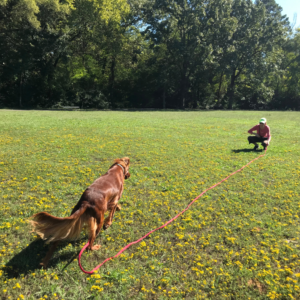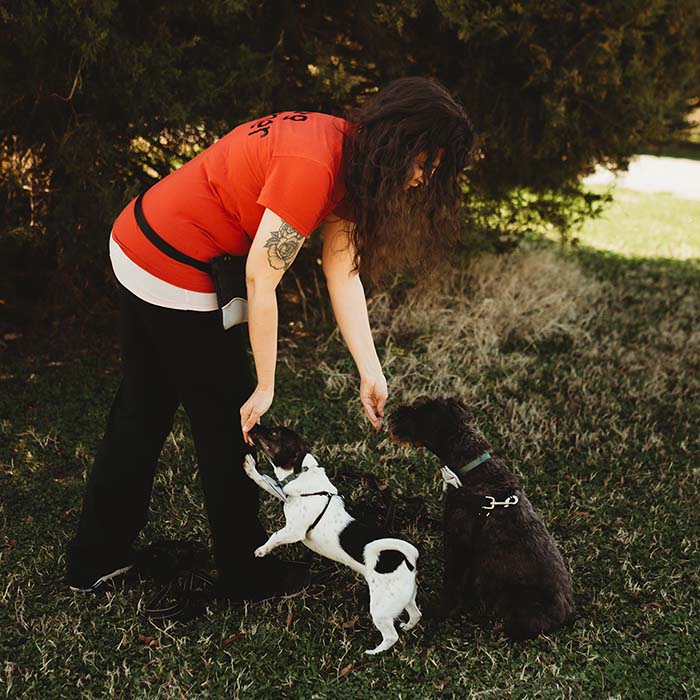Pandemic Pups: Part One with Dr. Marlow Ball
What we know now, nearly one year into a world-wide pandemic
Announcements:
- Classes have begun! There are a few more spots for Wednesday evenings beginning January 27, and Saturday afternoons, which began January 23. Email info@telltaildogtraining.com for more information.
- I’ve partnered up with 2 Hounds Design to get wholesale pricing for my clients, and I’m now a featured writer on their site. Check out the first article I wrote here, and you’ll be the first when more are published.
- Newsletters will instead be once a month instead of my attempt at once a week. Podcasts will be once a week once I get caught up, but there will be a blog post only once a month to line up with the newsletter.
- If you have not received training notes, reach out! It’s possible the email went to spam.
- There is no support for insurrection here at Telltail Dog Training. I believe in providing a safe space for all people and their dogs, which means LGBTQ+ and all people, Indigenous, Black, and People of Color included, are welcome. Human rights should not be political.
This is the first of a four-part series on the pandemic and our pets. Clients will be receiving the magazine that holds the entire article soon if they haven’t already. The TellTail Dog Magazine is a 36-page magazine designed and written by me just for my clients as a holiday gift and thank you. There are special goodies included from local pet stores and a lot of great content!
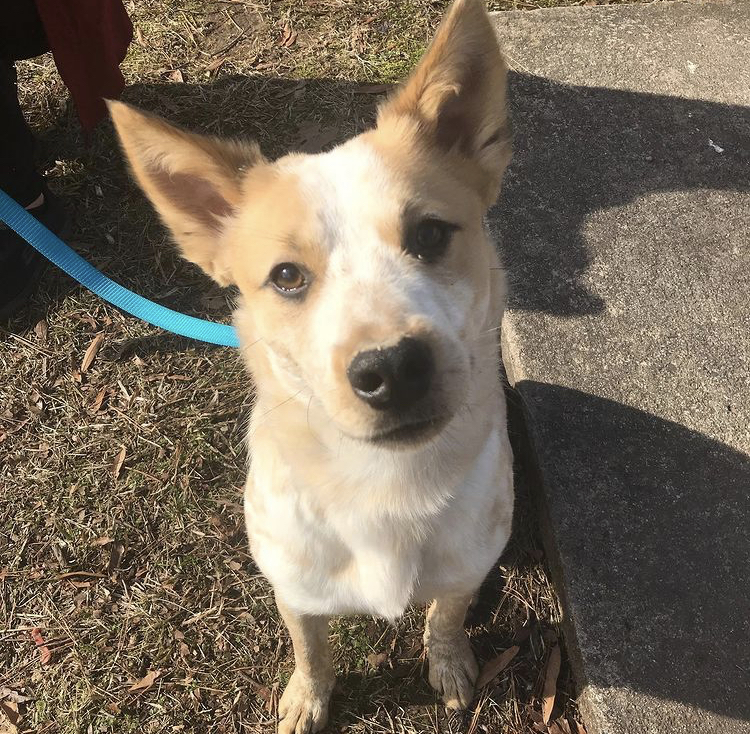
In March of 2020, when the pandemic began in the United States, information changed rapidly from day to day as the country shut down. I first spoke with Dr. Marlow Ball of SOMA Animal Clinic nearly a year ago, when the pandemic first hit. We discussed everything we knew then.
A year ago, the pandemic forced veterinary clinics to adapt as lockdowns were enforced. Dr. Ball needed to keep her staff and clients safe, all while adding a new veterinarian to the practice, Dr. Whitney Maloney, and a son to her own family, as Dr. Ball’s second child was born a few weeks ago.
She explained that most veterinary clinics at the beginning of the pandemic were conserving personal protection equipment (PPE) for humans, saving gloves and masks, and postponing elective surgeries. She also recommended gathering essentials in case of quarantine or lockdown, like two to four weeks of food, medications including heartworm, flea, and tick preventatives, water, and any other basic needs. “You may need to stay in your home two weeks, so you need to have supplies that will last you and your pet through that period of that time,” she said. “Or you need to have a list of contacts of people who may be able to pick your pet up if they get sick and bring them in.”
SOMA Animal Clinic developed a curbside system that minimized direct contact with people. Dr. Ball also explained that there is no indication that dogs or cats can infect humans with COVID-19. She recommended taking precautions, like maintaining social distance while walking with the dog.
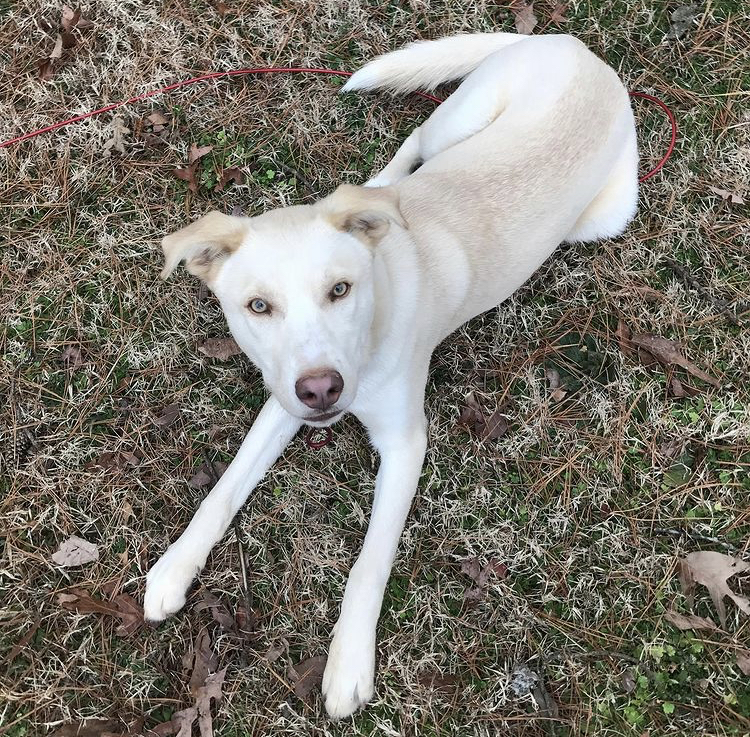
Now, there’s more information available about how cats and dogs are impacted. Cats are more susceptible than dogs to the virus, but the risk of transmission remains low between human and animal. “The chances of that are very small,” Dr. Ball shared. “I would recommend that we should treat our pets the way that we treat our children, which is that if you do not know someone well, it would be a good idea to keep pets away. If you wouldn’t let your kids run up and give a hug to someone, this would not be a good time to let your pet have close contact with other people, either.”
If a human in a household is sick, Dr. Ball recommends isolating from pets as well as other family members as a precaution. “The chances that we can spread this to our pets are going to be greatest when we are sick and shedding virus particles,” she explained. “If you are sick, and you’re quarantining from other people in your family, it’s a good idea to avoid close contact with your pets as well. Try to spend the majority of time in a separate room, try not to let them lick your plate or have close contact with your bodily fluids especially while you’re sick and having symptoms.”
And when out and about with our pets, Dr. Ball suggests being careful but not paranoid. “I think we just need to use common sense and try to make sure we set our pets up to be successful,” she said. “If you wouldn’t have your friends or family around a lot of strangers, I think it’s a good idea to follow the same rules as our pets. I don’t think that you should panic if your dog—as many will, dogs are feeling the social isolation as well—I don’t think you need to panic if your dog has licked a stranger or been in close contact with someone. But I think it’s easy and reasonable to bathe the pet, that may not be a bad idea, and then just monitor them for signs.”
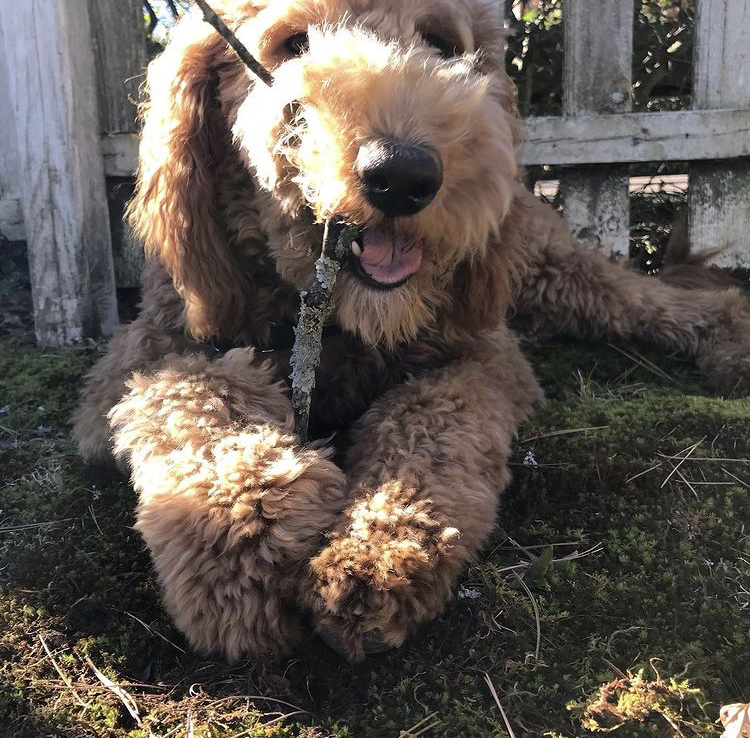
For the foreseeable future, SOMA Animal Clinic will continue to operate with curbside services, end-of-life care for very sick patients, and special accommodations for those with reactivity or fear-based behaviors. “We are a fear-free practice, so we continue to try to utilize treats and create a positive experience,” Dr. Ball said. “There are certain things that we are asking our owners to collect and bring in. For example, a fecal sample, for most owners, grabbing a ziplock bag and bringing in a stool sample is really not that hard versus us getting a sample, which is a very rude thing for a dog during a visit. We are trying to, as usual, continue with treats and make this a positive experience. I do have some very reactive patients who do best with their owners and we are allowing situations like that. We are allowing those owners to come in. But we’ve got a large room where we are able to socially distance and good ventilation. So there are exceptions just based on the fear and reaction of each pet.”
Plus, an unexpected pandemic means getting creative with training and socialization. Dr. Ball recommends doing the homework before bringing a dog home and thinking of alternatives like going to Home Depot and keeping the puppy in the cart, or running to Starbucks to get some coffee. “The more you can get them out and in the world, the better they can be when they travel to your vet,” she explained. “A lot of people are getting puppies because they’re home more and it’s been great watching a lot of local shelters getting a huge increase in adoptions. I was so worried when Little Rock Animal Village, our shelter here, closed to the public. I was worried about how all of those dogs are going to be getting homes and I was also worried that people might be rehoming pets because of economical or just hardship that people are experiencing due to job loss, and we really have not seen that happen at this time, which is very good but people are getting puppies and then it’s hard to socialize them appropriately right now because of the need to social distance. I think if you are planning to get a puppy, I think it’s important to do your homework and have a plan for what you’re going to do to socialize them.”
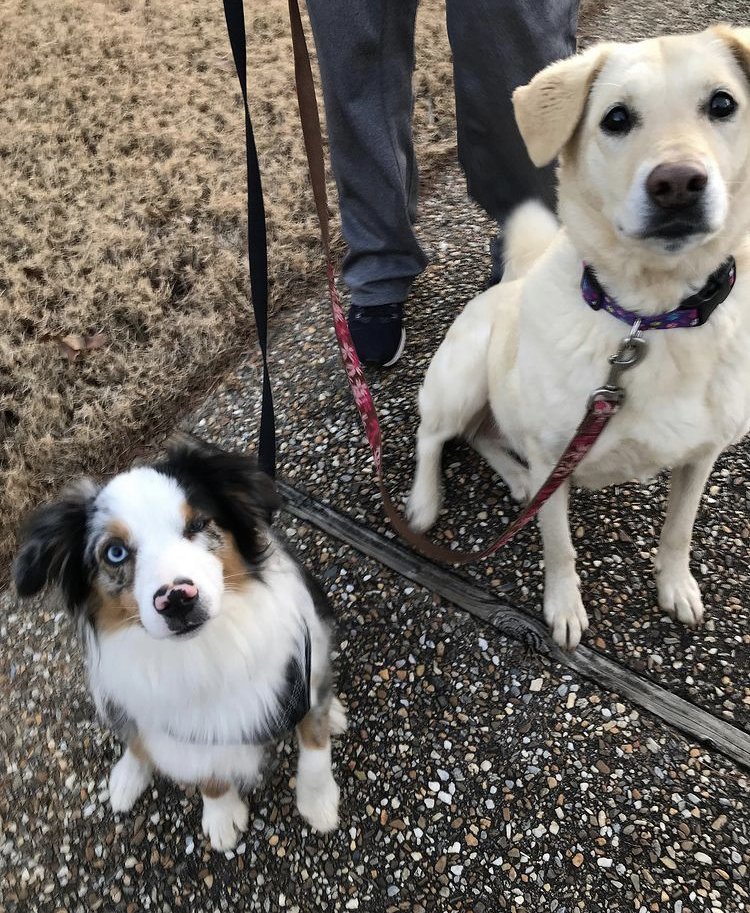
Moving forward, until there’s a widely accessible vaccination, Dr. Ball anticipates that the pandemic will be an ongoing challenge, especially as flu season approaches. “I think that once we get through to the spring, we’re going to be on the other side of this, but I don’t expect that this is going to go away in January,” Dr. Ball said. “We need to look at how we can make sure our pets are taken care of and they continue to get the services and care that they need while we also try to make safe decisions for staff and for ourselves. Most people have really embraced the curbside because it’s about keeping them safe as well. But I suspect we’re going to continue this for at least another six months or possibly longer based on projection of when a mass vaccine will be available.”
Dr. Ball is on maternity leave at the moment, but the clinic is open! Find them on Facebook or visit their website. How have you and your pup adjusted with the pandemic? Sound off in the comments below or send me an email at info@telltaildogtraining.com. Telltail Dog Training offers group classes and private in-home lessons in the Little Rock area, along with training walks for current clients. Find Telltail’s podcast here, or find additional information on Instagram, Facebook, and YouTube.


